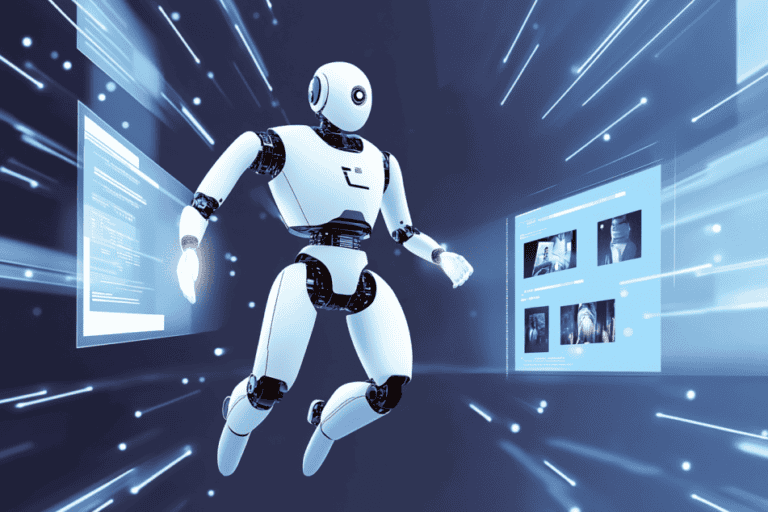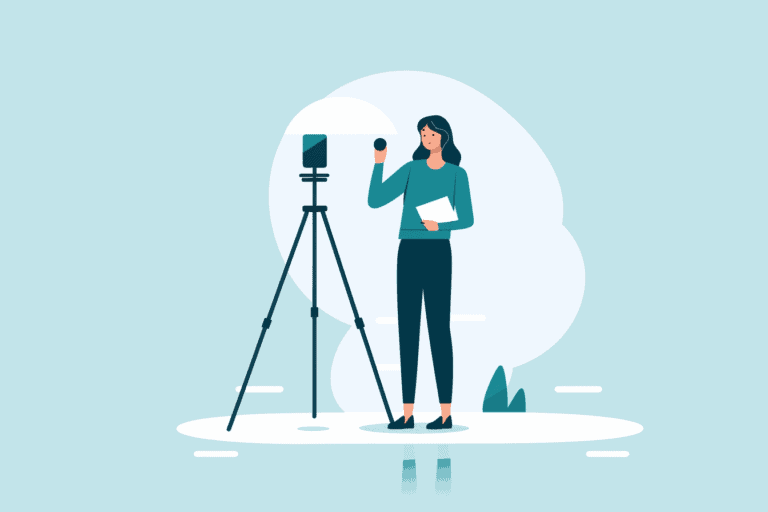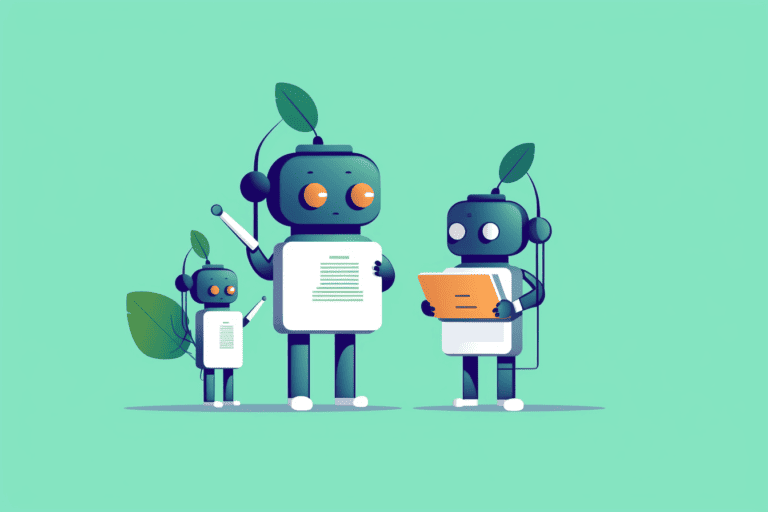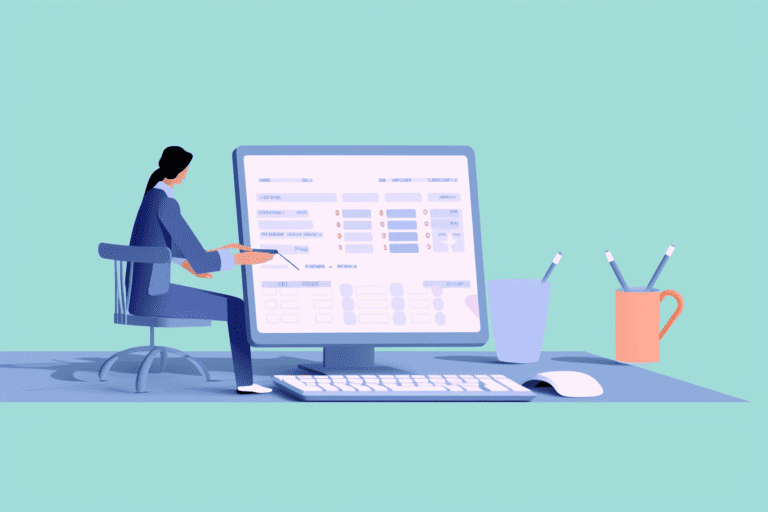5 Types of Jobs That AI Can’t Replace Anytime Soon
Does the AI revolution scare you? Or does it make you wonder if there’s any space left for the human labor pool in the current job market? You are not alone in this, as millions of people hoping to choose a career path or switch professions share the same concerns.
AI technology is indeed creating job insecurity for so many people around the world. AI tools can enhance your productivity, as they are doing tasks that would take people a lot of time to do within the snap of a finger. According to recent studies, AI will impact up to 80% of the jobs in the United States workforce. It is also estimated that AI could replace up to 300 million full-time jobs. With stats like this, it’s unsurprising that people are deeply concerned. It’s possible to wake up tomorrow to discover that an AI tool has taken your place at work.
The million-dollar question now is— are there jobs that AI can’t replace? The answer is yes; there are jobs AI hasn’t cracked yet, and chances are it never will. These kinds of jobs require a high level of creativity, technical ability, emotional intelligence, and complex decision-making.
This blog post will discuss how AI is a threat to jobs, its limitations, and how said limitations can serve as pointers to knowing what jobs AI can’t replace.
AI’s Threats
Artificial Intelligence (AI) poses a big threat to job security as it can replace human workers in different fields. By creating computer systems that can perform tasks requiring human intelligence, like problem-solving, learning, perception, and decision-making, AI algorithms and machine learning imitate cognitive functions.
The speed and efficiency of AI in completing tasks significantly reduce business costs, making it tempting for companies to replace human workers with well-programmed AI systems that can handle the workload of an entire department. One example is the use of generative AI, like Chat GPT, as a substitute for human writers. This technology is now widely used by many companies, not only in content creation but also in areas like art, photography, and music.
AI’s Weaknesses
As excellent as AI tools can be, they are not infallible. These tools have been developed to do certain levels of work and not others. AI lacks emotions and consciousness, restricting its ability to comprehend complex human experiences and produce genuinely inspired creative works.
AI could help with tedious and repetitive tasks like getting an online scheduling assistant if you need help sorting out your scheduling. However, AI is lacking when it comes to tasks that require emotional intelligence, critical thinking, emotional support, etc. What all of the qualities mentioned above have in common is the need for a human touch.
Many fields require human ingenuity to run the day-to-day with skill sets that aren’t replicable by AI, making it impossible for AI to erode human autonomy in such sectors.
Jobs that AI can’t replace
Though AI can be used in some capacity in some of these fields, here are some of the top jobs AI can’t replace:
1. Creative Professions

While it is true that generative AI has infiltrated the creative industry, its position of power is still highly debatable. There are many jobs within the creative sector that AI cannot manage at the moment. According to a report done by Goldman Sachs, AI can only automate 26% of design, arts, media, and entertainment tasks. These jobs require a level of human creativity, human interaction, and human judgment to be done effectively. An excellent example of these are the artists.
Artists
This umbrella term would cover the professionals involved in both visual and performing art. While it’s possible for some areas here to be done using AI, no AI tool can offer the humane nature that comes with people doing it.
The list will include directors, actors, sculptors, and writers. While generative AI might get you buzzing about replacing writers, it’s nowhere near it. Though we cannot deny the potency of these tools as aids for the writer, they cannot replace the writers in the creative industry.
The level of coherence needed across a long story plot that engages a target audience is not something AI would be able to offer any time soon. The ability to come up with outstanding ideas in both film and theater still eludes AI. These fields are still broadly dominated by humans.
2. Social and Emotional-Intelligence-Based Jobs

Although there has been recent hype in the media about AI serving within the emotional and social space, it’s not replacing humans anytime soon. This is because the emotional needs of people can’t be met by a machine that runs on codes of ones and zeros.
The jobs that are obtainable within this space do not deal with just being book-smart. While AI excels so well at that, its inability to understand and process emotions is why it cannot be used in this field. People have different emotional needs, and professionals in the associated fields have learned by precept, practice, and experience how best to deal with these issues.
Therapists and Counselors
I guess this would be a no-brainer. Mental health and emotional well-being are significant aspects of human life. They require a great depth of emotional maturity to work. This is something AI could never offer. When you tell an AI you are going through a divorce, what it does is crawl the web and bring you the best free information it can find from therapy and counseling sites online. But it could never offer you what goes on behind the closed doors of a therapist’s office.
That aspect requires a trained professional who understands that talking to people and gaining their trust is essential to them opening up and getting help. Unfortunately, AI is not just there yet.
Social Workers
Social workers dedicate their time to helping individuals, families, and communities to enhance their well-being and overcome diverse challenges. This is a job that requires the presence of a person as it involves dealing with people’s lives on a high pedestal. A regular day in a social worker’s life would include the assessment of people’s needs and providing interaction when needed.
To do this, they would need to pay attention to people. This is something AI could never do. AI cannot go from one hospital bed to another talking to people. Furthermore, no AI can advocate for people’s needs or put meticulous effort into managing cases.
Customer Service Roles
At first, using chatbots as customer service representatives seemed like a clever idea. But industries realized that the human touch is crucial in this field. Customer service representatives do more than just provide information and solve problems.
They also need to empathize with customers and meet their emotional needs. Humans are better at dealing with complex issues, understanding subtle hints from customers, and giving empathetic responses in different situations. AI still struggles in these areas, highlighting the irreplaceable value of human customer service representatives.
3. Complex Decision-Making Jobs

Making complex decisions that may impact the well-being of other people in an organization is never an easy task. In decision-making, certain professions require a specific grade of judgment, critical thinking, and adaptive problem-solving that are beyond the ability of any artificial intelligence. There are jobs where this is a primary component and, therefore, require a Human head to handle the task.
Judges and Lawyers
Law professionals, like judges and lawyers, must understand the law and human behavior well. They have to look at complicated cases, think about what happened before, and decide what’s right or wrong. This needs a lot of experience and understanding of how people and society work. Computers aren’t good at this because they can’t understand emotions and society like humans can.
Senior Executives
Big bosses have to decide things that can change how a company works. They need to think about many things, like planning for the future, managing people, and dealing with changes in the market. This requires a mix of experience and knowing how people think. Computers can’t do this because they don’t have human experience and can’t adapt like people do.
Strategic Planners
People who plan important things for companies need to be innovative. They have to think about what might happen and plan ahead based on that. This job requires creativity, thinking ahead, and using knowledge well. Computers find this challenging because they can’t think creatively or predict the future like humans.
In these jobs, how people understand situations, think about ethics, and predict what might happen next is extremely important. Computers struggle with this because they can’t understand emotions and society as humans can.
4. Highly Skilled Technical Jobs

In highly skilled technical jobs, humans truly stand out with their exceptional creativity and problem-solving skills. Think about the amazing contributions of scientists, doctors, and engineers. These remarkable individuals rely on their gut instincts and deep understanding of human behavior, which AI cannot match. These roles depend on special qualities that only humans possess. Recognizing this highlights the invaluable importance of human skills in driving progress in these specialized fields.
Scientists and Researchers
Scientists and researchers play a vital role in discovering new things and expanding our knowledge about the world. They conduct experiments, analyze data, and develop theories to explain how things work. Their work covers various fields like physics, biology, chemistry, and more. What makes them special is their ability to think creatively and come up with innovative ideas to solve complex problems.
For example, when exploring a new scientific concept, they need to imagine new possibilities, design experiments to test these ideas, and interpret the results. This kind of creative thinking and cleverness is difficult for computers to replicate because it involves intuition, imagination, and the ability to connect different pieces of information in a unique way.
Doctors and Medical Specialists
Doctors and healthcare specialists have the important role of diagnosing illnesses and providing treatments to improve people’s health. They dedicate years to studying the human body and understanding how diseases impact it. These medical professionals use a combination of knowledge, experience, and empathy to make critical decisions about a patient’s care.
For instance, a surgeon must have steady hands and extensive training to perform precise surgeries. Although technology assists in diagnosis and treatment, the personal aspect of healthcare—such as comforting patients, understanding their concerns, and making judgment calls in complex situations—is something that computers cannot fully replicate.
Engineers in Certain Fields
Engineers are problem solvers who create and design things like bridges and software. They use science, math, and technology to find solutions to real-world problems. For example, civil engineers design infrastructure while considering safety, the environment, and how well it works. Software engineers create programs and applications to meet specific needs.
What makes engineers special is their ability to think critically and creatively. They have to think about many things when they design something, like how much it costs, how well it works, and if it’s safe. Computers can help with calculations and simulations, but humans are still important for coming up with new ideas, finding different solutions, and dealing with unexpected problems.
In short, these technical jobs need expertise, creativity, and problem-solving skills that come from human thinking and adaptability. These are things that computers can’t do as well.
5. Athletic Professions

If any industry has benefited from AI, it’s the sporting industry.
Artificial intelligence has revolutionized the way athletes train, strategize, and perform. Its applications range from wearable technology that monitors an athlete’s physiological parameters, to advanced predictive analytics that help in strategic planning.
For instance, football teams use AI tools to analyze opponent strategies, player performance, and injury risks. However, the core of any athletic performance—precision, athleticism, and resilience—is fundamentally human. No AI can replicate the triumphant moment when a runner crosses the finish line, or the raw emotion that floods a stadium when a goal is scored. The human element is what makes sports so deeply impactful and inspiring.
Moreover, AI can never replace the coaches, trainers, and therapists who play a pivotal role behind the scenes. Their understanding of the athlete’s physical and emotional needs, coupled with their empathy and motivational abilities, are irreplaceable. While AI provides valuable insights, the decision-making and implementation still largely rely on human expertise. Therefore, in the world of sports, AI is an ally rather than a replacement.
Conclusion
Well, there you have it— 5 types of jobs that AI can’t replace.
These jobs all have something in common – they operate within the current limitations of AI. They require a mix of creativity, technical expertise, emotional intelligence, and complex decision-making. Unfortunately, AI works based on predefined rules and algorithms, lacking the ability to understand emotions and context in specific situations.
So, if you’re looking for job opportunities where you won’t have to compete with AI, consider choosing a field that limits the role of AI and aligns well with your skill set.
Make a smart career choice and embrace a future where human skills thrive alongside AI advancements!







